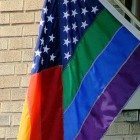August 2, 2011; Source: The Modesto Bee |Immigrating by choice is challenging enough, but when you are a refugee—forced to flee your homeland with not much notice and preparation because of political or social persecution—it can be simply overwhelming.
On top of adjusting to a new culture, you have to learn the basics that most natives take for granted. How do you find a place to live? Where do you shop for food? How do you open a bank account? How can you trust law enforcement authorities when you had feared them back home? How do you communicate with your new neighbors?
In 2010, 73,293 persons were admitted to the United States as refugees. These individuals escaped extreme and at times life-threatening conditions in their native countries. They come from nations as varied as Iraq, Burma, Bhutan, Somalia and Cuba.
Among these brave souls are Sally Khorani and her sister Vally, Christians from Kirkuk who now find themselves in Modesto, California. Their father worked as an interpreter for the U.S. Army in Iraq and Sally worked for a company that helped with efforts to rebuild her ravaged country.
Sign up for our free newsletters
Subscribe to NPQ's newsletters to have our top stories delivered directly to your inbox.
By signing up, you agree to our privacy policy and terms of use, and to receive messages from NPQ and our partners.
Lori Aderholt, director of World Relief’s Modesto office, points out that “things are different here for them. It’s everything, from how to shop for groceries to how to apply for a job.” The international relief agency is helping the Khorani sisters and other refugees worldwide integrate into their host countries.
World Relief is one of the nonprofits that partner with the federal government in getting refugees settled into the United States. Other organizations include the Ethiopian Community Development Council, Episcopal Migration Ministries, Hebrew Immigrant Aid Society and Lutheran Immigration and Refugee Services.
These nonprofits aid refugees by offering a range of educational, social, advocacy and support services to help newcomers become self-sufficient and productive members of our communities.– Erwin de Leon












